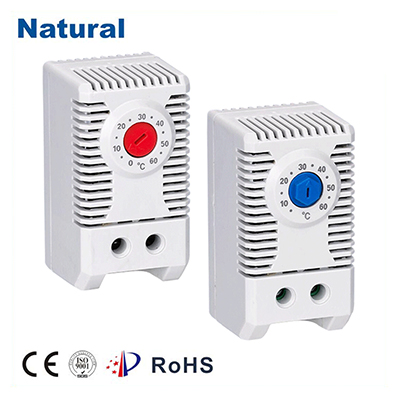In various industries and applications, maintaining precise temperature control is paramount. Whether it’s in laboratories, manufacturing processes, or even home appliances, temperature plays a vital role in achieving desired outcomes. In this context, small temperature controllers have emerged as essential tools, offering remarkable benefits in terms of accuracy, efficiency, and versatility.

Small temperature controllers, as the name suggests, are compact devices designed to regulate temperatures within tight tolerances. They are engineered with advanced sensing technologies that allow them to detect even the slightest fluctuations in temperature. These controllers then make rapid adjustments to maintain the desired temperature, ensuring consistent conditions for optimal performance. One of the most remarkable features of small temperature controllers is their compact size. Unlike their larger counterparts, these controllers can be seamlessly integrated into tight spaces and smaller equipment. This makes them invaluable in situations where space is limited, such as medical devices, portable electronics, and compact industrial machinery. Their ability to deliver precision in a confined form factor sets them apart as technological marvels. The precision offered by small temperature controllers is a result of cutting-edge temperature sensing mechanisms. Most of these controllers employ highly sensitive sensors like thermocouples, resistance temperature detectors (RTDs), or thermistors. These sensors provide real-time temperature data to the controller, enabling it to make rapid and accurate adjustments to the heating or cooling mechanisms. As a result, these controllers can maintain temperatures within fractions of a degree, a feat that is crucial in applications like semiconductor manufacturing and biotechnology research. Efficiency is another compelling aspect of small temperature controllers. Their rapid response times and accurate adjustments reduce energy wastage, as they ensure that the temperature is always maintained at the desired setpoint. In industrial processes, this efficiency can lead to substantial cost savings over time, contributing to both environmental sustainability and economic viability. Small temperature controllers also shine in terms of versatility. They can be configured to control a wide range of temperature profiles, from simple set-and-forget scenarios to complex temperature ramping protocols. This adaptability makes them suitable for various industries, including food and beverage, automotive, and even creative arts like glassblowing, where precise temperature control is crucial for achieving desired results. In recent years, advancements in technology have enabled connectivity features to be integrated into small temperature controllers. This allows for remote monitoring and control, enabling operators to oversee temperature conditions from a distance. Whether it’s through local networks or the Internet of Things (IoT), these controllers offer a level of convenience and oversight that was previously unimaginable. In conclusion, small temperature controllers have revolutionized the way temperature is regulated in a multitude of applications. Their compact size, precision, efficiency, and adaptability make them indispensable tools in industries where temperature control is paramount. As technology continues to evolve, it’s likely that these controllers will become even more sophisticated, ushering in a new era of precision and convenience across various sectors.